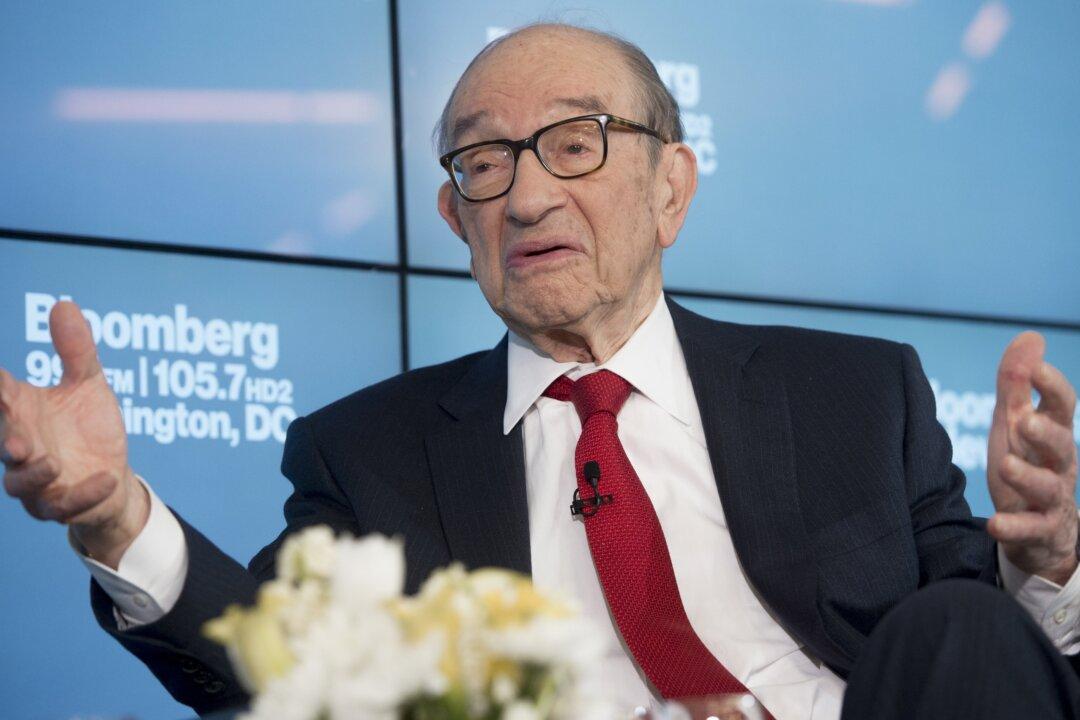The United States slipping into a recession is the “most likely outcome,” according to former Federal Reserve chair Alan Greenspan.
Greenspan, who’s now senior economic adviser at Advisors Capital Management, said in a year-end question-and-answer commentary posted on the firm’s website on Jan. 3 that even a pivot by the central bank wouldn’t be “substantial enough to avoid at least a mild recession.”





